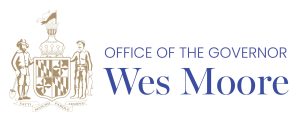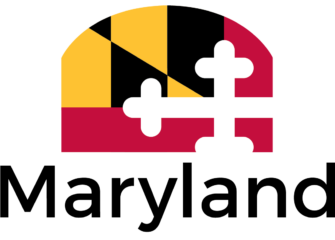
Grants help bring cleaner, cheaper energy and efficiency measures to overburdened and underserved communities; programs help build relationships, open doors to job training opportunities for under-resourced Marylanders
Annapolis, MD — Governor Wes Moore and the Maryland Energy Administration today announced the annual launch of two key programs that bring better energy solutions to the homes of low-to-moderate income Marylanders and Marylanders living in overburdened or underserved communities. The FY24 Energy Efficiency Equity Grant Program and FY24 Solar Energy Equity Grant Program are expected to provide a total of $22.5 million in Fiscal Year 2024 to Maryland nonprofit organizations and local governments to help them install energy efficiency and weatherization measures, as well as solar energy generating systems, on eligible homes.
“We must work together to ensure that as we accelerate the transition to a clean energy future, we leave no Marylander behind,” said Gov. Moore. “These programs will help Marylanders save money, create new pathways to work, wages, and wealth, and prove to the nation that you don’t have to choose between a green economy and an equitable one – we can, and will, achieve both.”
“Expanding equitable access to the many benefits of renewable energy and energy efficiency measures to Maryland’s most vulnerable is an important part of meeting Governor Wes Moore’s pledge to get Maryland to 100 percent clean energy by 2035. Our goal is to help every Marylander realize the benefits of clean and efficient energy,” said Maryland Energy Administration Director Paul G. Pinsky. “By investing in Maryland’s historically disadvantaged, overburdened and underserved communities, we are underscoring this administration’s commitment to leaving no one behind in the clean energy transition.”
According to the U.S. Department of Energy, low-income households have the country’s highest energy burden, or percentage of a household’s monthly income spent on energy expenses. In comparison to higher-income households, low-income households face an energy burden that is, on average, three times higher. Updating outdated and inefficient lighting, appliances, and heating and cooling systems that use large amounts of energy reduces the amount of energy that a household needs, helping Marylanders shrink their energy costs and free up income for other expenses.
Adding a solar system further reduces energy cost and consumption, because the energy is produced at virtually zero operating cost. In addition, Maryland’s net metering law allows for solar energy that exceeds a home’s usage to be sold back to the grid, further enhancing the cost savings to disadvantaged, overburdened and underserved Marylanders.
The energy efficiency and solar energy sectors have grown rapidly and will continue to do so as the demand for clean, efficient, affordable and reliable energy accelerates. Maryland employed nearly 75,000 clean and efficient energy industry professionals in 2022, according to federal estimates. More than 66,000 of these jobs are in the energy efficiency sector alone and nearly 7,000 jobs are in the solar energy sector. Many current and prior recipients of Energy Efficiency Equity and Solar Energy Equity grants contract with energy efficiency and solar energy installers that offer workforce training and development opportunities to the same communities that benefit from these grant funds.
The Maryland Energy Administration expects both programs to be highly competitive. Each applicant and interested party is strongly encouraged to thoroughly review the Funding Opportunity Announcements prior to completing and submitting application packages. Only the strongest proposals that best meet all requirements of the respective program will be considered for funding.
More information about the Energy Efficiency Equity Grant Program , including terms, conditions, requirements and how to apply, can be found here. Questions should be directed to the Maryland Energy Administration Section Chief, Energy Efficiency, at LMIReports.MEA@Maryland.gov.
More information about the Solar Energy Equity Grant Program, including terms, conditions, requirements and how to apply, can be found here. Questions should be directed to Maryland Energy Administration Solar Program Manager Abigail Antonini at SolarEquity.MEA@Maryland.gov.



